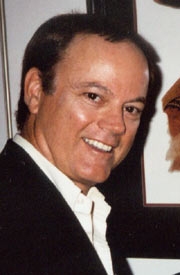
KANSAS CITY, Kan. (BP)–Though there were several films in 2007 whose artistic and technical merits captured the attention of critics and moviegoers, I wanted to choose a couple of good ones that uplifted the spirit.
As for the worst film of the year (there were many), I picked two that besides being stunningly awful in their execution also contained negative concepts of Christianity. And then there were some this year that had powerful messages, but the filmmakers couldn’t manage to tell their story without crude content. Viewing those in that category, I questioned whether their profundity outweighed the profanity.
THE BEST
— “In the Shadow of the Moon” (PG for mild language and brief violent images). This incisive documentary features the accounts of the surviving members of the Apollo teams who walked on the moon, giving a fresh perspective of those achievements and allowing for the spiritual implications that affected the men on those explorations. At one point, we hear Charles Duke from the Apollo 11 mission give his testimony. I couldn’t believe my ears; a man was declaring his faith in Jesus Christ and there were no snickers from audience members. Indeed, my fellow moviegoers were moved, realizing that there is something far bigger than man, or even space itself. In the Shadow of the Moon engages, uplifts and unites.
NEARLY THE BEST
— “Elizabeth: The Golden Age” (PG-13 for violence and some sexuality). Reprising the roles they originated in “Elizabeth,” Cate Blanchett and Geoffrey Rush return for a historical drama laced with treachery and romance. Joining them in the epic is Clive Owen as Sir Walter Raleigh, a dashing seafarer and newfound temptation for Elizabeth. Writers William Nicholson and Michael Hirst, director Shekhar Kapur and all the artists and technicians involved in this production have given moviegoers a stunning cinematic experience.
The story has much to do with Catholicism vs. Protestantism, or at least the political significance of the two during that age. Spain’s King Philip, according to the film, was sure he was meant to defeat Elizabeth, seeing Protestantism as the devil’s deception. Queen Elizabeth wanted the two religions to dwell in harmony under her reign, and despite urgings from her court, she wouldn’t punish people for their beliefs. Alas, a very, very brief shot of nudity (seen from behind) and an implied fornication scene keeps this one from the “best” category.
THE WORST
— “License To Wed” (PG-13 for sexual humor and language). Reverend Frank (Robin Williams) won’t bless a marriage union until the couple undergoes his marriage-prep course. I suppose the concept of Robin Williams playing a priest was amusing to those who read the script, but his irreverent reverend is bizarre to the extreme. He not only vomits out off-color jokes to his congregation; he makes inappropriate comments to a class of little kids he’s teaching about the sins of adultery. Other humor ranges from lame to borderline blasphemous.
The subject of a young couple entering into wedlock is ripe for incisive satire, but here we are given nothing of true substance or clever wit. Nor is there one honest emotion or three-dimensional characterization in the entire film. And Robin Williams shouldn’t be playing a pastor; he should see one.
— “The Reaping” (R for language, violence, disturbing images and some sexuality). Hilary Swank plays a former Christian missionary who lost her faith after her family was tragically murdered by the very people she had been sent to help. She has since become a world-renowned expert in disproving religious phenomena. If you’re looking for a joyless spook story complete with deceptive theology, gruesome deaths and a moping lead who suffers from guilt and bouts of stupidity, this may be your cup of tea.
THE MIGHT-HAVE-BEENS
— “Michael Clayton” (R for excessive language and sexual dialogue). With its insightful, nonlinear script, coupled with trenchant dialogue, engaging directing and incisive performing, “Michael Clayton” is a masterpiece. Alas, my appreciation is somewhat dampened by the film’s often abusive language, including the profane use of God’s name by several major characters.
What a shame, because I thoroughly enjoyed the other elements of this film. The lead is drifting, finding no solace in his work or life, until he finds himself head on with a dilemma whereby he can find a sort of redemption. His reformation is symbolic, noting that worldly success leaves the soul unfulfilled.
“The Bucket List” (PG-13 for language and a sexual reference). Two dying men become friends while sharing a hospital room. Mr. Nicholson plays a cynical, lonely billionaire eventually led to a better way by Mr. Freeman’s good soul. Together they circumnavigate the world, crossing off items they wanted to accomplish before their life came to a close.
Unlike most films dealing with a lead character facing death, this one actually addresses the afterlife. While the Morgan Freeman character explains what other religions say about heaven, a scene of him and his family praying over a meal indicates that Christianity has been his spiritual path. He’s a man with foibles of his own, but his patient, forgiving and compassionate heart reflects a sincere response to his faith, and this obviously has an affect on the Nicholson character.
Sadly, I was troubled by the profane use of God’s name (mostly by the embittered Nicholson character –- but once by Mr. Morgan, who’s playing the more spiritual of the duo).
–30–
Phil Boatwright reviews films from a Christian perspective for previewonline.org, where complete reviews of these movies, as well as details about possible parental concerns, can be found.
















